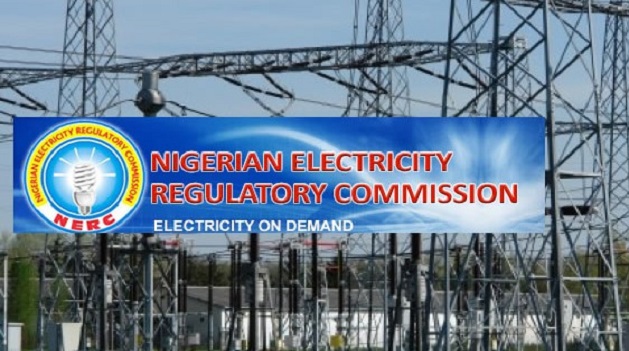News
NASRDA Expresses Commitment to Developing Indigenous Technology

The National Space Research and Development Agency (NASRDA) over the weekend says it is committed to developing the country’s indigenous technology in basic space technology.
The Director-General of the agency, Prof. Seidu Mohammed, said this at the Space Centre Week and Exhibition of the agency’s Centre for Basic Space Science (CBSS) in Nsukka, Enugu State, with the theme “Basic Space Science for Development”.
Represented by Dr Spencer Onu, the Director, Centre for Satellite Technology Development (CSTD), Mohammed said that the agency was taking steps to ensure that projects and actions were in line with Federal Government’s effort to make Nigeria a knowledge-based economy.
The director-general said that the agency was into production of scientific tools like a telescope to aid sustainable scientific research in the country.
A telescope is an optical instrument designed to make distant objects appear closer which also contains an arrangement of lenses, curved mirrors and lenses.
Telescope also collects rays of light and magnifies focused objects.
Mohammed said that although the cost of funding the production of the telescope was high, the centre would deploy available resources to develop the tool.
He added that “we believe that the telescope proposed by CBSS is very useful and functional to our requirement.
“It has been under construction for four years now but we have to intervene now because two years ago, money was allocated for it but was not approved by the National Assembly.
“Without a telescope, we cannot meet up in terms of research with high impact factor in the global space.
“With the telescope, a lot of high impact researches can be done in Nigeria and other parts of the world.”
The NASRDA boss said that Nigeria needed to leverage on its location on the planet which is close to the equator and utilise the telescope for astronomy.
He further said that basic space science was the first principle in space science “and anything you are doing on the first principle, you are indigenising it.”
Prof. Pius Okeke, the pioneer Director of CBSS, said that the centre was moving in the right direction toward advancing basic space science in spite of minimal funds.
According to him, basic space science is the study and research on the fundamental science of space which leads to the ability to unfold hidden treasures in space.
Okeke said that basic space science required will, motivation and determination to diversify into areas of research yet to be tapped for discoveries.
Similarly, Okeke said the government needed to be willing to properly fund basic space science projects.
He said “it is no longer necessary to educate government about the importance of fundamental research for any developing nation.
“No one builds a house from the air without foundation. Fundamental research in space science should be the starting point for successful development of space technology.
“The temptation to pursue after only application for immediate benefit should be discouraged.”
The former director added that there should be capacity building of scientists in the sector to underscore the country’s dynamics of space science “because no country would disclose the secret of its space science and technology.”
He added that efforts to explain behaviours of several astronomical objects with current physics like neutron stars, climate changes, ionospheric phenomena, cosmic rays, among other objects, was no longer effective.
He called on scientists to be at the front burner of initiating new laws of physics because most revolutionary discoveries of the future come from basic space science.
Highlights of the event included award of recognition to some outstanding staff of CBSS.
News
Lagos-Calabar Highway Gets $100M Push from ECOWAS to Drive Regional Growth

ECOWAS Bank for Investment and Development (EBID) has committed $100 million to support the development of a key section of Nigeria’s Lagos-Calabar Coastal Highway.

This funding covers a 47.7-kilometre stretch, marking Section I, Phase I of the project, which originates from Ahmadu Bello Way in Lagos.
Work on the highway began in March 2024, with Hitech Construction Company Limited appointed as the main contractor.
The announcement was made during EBID’s 92nd Ordinary Session held in Lagos, where the bank outlined a series of development financing commitments amounting to €174 million and $125 million, targeted at infrastructure and social development across the ECOWAS region.
The investment in the Lagos-Calabar Coastal Highway is designed to boost intra-regional connectivity by linking nine Nigerian states. It will also enhance access to strategic seaports, support agro-industrial development, and improve logistical networks along Nigeria’s southern corridor. The highway is further expected to contribute to the formation of a regional supply chain, economically empowering coastal communities.
“The bank also approved $100 million in funding for the Lagos-Calabar coastal motorway project in the Federal Republic of Nigeria. It said that this project, which spans 47.7 km, would link nine Nigerian states and improve access to seaports and isolated agro-industrial areas. EBID noted that the funding would also contribute to the emergence of a regional value chain to support coastal communities.”
Other EBID-backed initiatives include €50 million earmarked for the establishment and outfitting of six technical and vocational education centres in Togo. These centres aim to provide skills training for up to 3,480 youths annually, focusing on high-demand trades.
In Guinea, the bank allocated €28.9 million to revamp four agricultural high schools, and an additional €95.16 million to build three hydroelectric micro-power plants with a combined generation capacity of 30 megawatts, aiming to expand rural access to renewable energy.
Côte d’Ivoire will benefit from a $25 million facility directed at financing clinker imports by Société de Ciment de Côte d’Ivoire—a move expected to support local cement manufacturing and alleviate raw material shortages in the construction sector.
EBID noted that its latest funding initiatives align with the United Nations Sustainable Development Goals (SDGs), particularly Goal 9, which advocates for advancements in industry, innovation, and infrastructure. With these latest disbursements, the bank’s cumulative investment across the West African region has surpassed the $5 billion milestone.
Nigeria’s Minister of Works, David Umahi, recently disclosed that the Federal Government has signed off on contracts exceeding N3 trillion for multiple sections of the Lagos-Calabar Coastal Highway project, extending through Lagos, Akwa Ibom, and Cross River states.
The Lagos segment—Section I—was awarded at N1.068 trillion, with 30 percent of the contract sum already paid.
Section II, which includes multiple bridges and traverses difficult terrain en route to the Dangote Refinery, has been contracted at N1.6 trillion.
Sections III A and III B, covering parts of Akwa Ibom and Cross River, were jointly valued at N1.33 trillion.
President Bola Tinubu officially inaugurated the first completed segment of the coastal highway in May 2025, signalling the project’s steady progress.
News
LG Launches “Radio Optimism” Campaign to Spread “Life’s Good” Through Music

LG Electronics has launched a new brand campaign, “Radio Optimism,” designed to help strengthen meaningful human connections and spread optimism through shared musical experiences.

This initiative aligns with LG’s brand promise, “Life’s Good,” and addresses the growing challenge of forming genuine relationships in a technology-driven world.
The Radio Optimism campaign seeks to counteract the disconnection often felt in an era dominated by superficial interactions, such as likes and comments on social media. By harnessing the power of music, LG aims to foster deeper bonds among individuals, promoting a more fulfilling life.
“As technology advances, meaningful human connections become increasingly vital to enrich our lives. LG continues its commitment to bringing optimism into customers’ daily lives, staying true to our enduring brand promise of ‘Life’s Good,’” said Kim Hyo-eun, head of LG’s Brand Management Division.
This campaign reinforces LG’s commitment to creating enriching experiences in digital spaces where today’s consumers spend significant time. Building on this mission, LG has continuously engaged with younger audiences through participatory campaigns that bring the Life’s Good philosophy to life.
Last year’s “Optimism your feed” campaign leveraged social algorithms to foster positivity on social media. This new initiative specifically seeks to address the paradoxical disconnection in an era of hyper-connectivity.
“One of the most reliable predictors of happiness is having deep and meaningful relationships,” said Jean M. Twenge, Professor of Psychology at San Diego State University. “Yet today, many people are spending more time online and less time connecting in person. Social media in particular tends to create shallow relationships rather than the deep connections people need.
“It’s common for people to have hundreds of followers but no one to talk to in real life if they need support. We need to build more meaningful connections with those around us. That might turn around the pronounced decline in happiness that’s occurred over the last decade.”
A new global study* from LG on social connection reveals that 68 percent of people find it harder to make real friends, and a third reported having one or fewer meaningful connections in the past month, with 8 percent experiencing none at all.
Inspired by traditional radio’s unique way of connecting people through music and storytelling, the Radio Optimism campaign transforms this concept into an interactive platform where participants can create and send personalized songs to their loved ones.
Users can easily create new songs using AI-powered tools, which are thoroughly trained on a curated music dataset. These tools interpret user prompts to produce unique musical pieces and generate matching album art, providing an engaging and personalized experience. Once generated, these songs can be sent to recipients to deepen their connection and made available for others to discover worldwide.
According to the survey, nearly 9 in 10 respondents believe that meaningful connections lead to a more optimistic outlook on life. By providing a platform for individuals to express their feelings, this campaign aims to foster deeper connections and help individuals enrich their lives while spreading optimism in their own ways.
The campaign website is available in English and Spanish, with plans to support additional languages in the coming months to enable broader participation. The official website can be found at RadioOptimism.lg.com.
News
Nigeria’s Electricity Output Climbs 10.92% in Q1 2025, Boosted by Thermal Plants

Nigeria’s electricity generation rose by 10.92% in the first quarter of 2025, driven by improved operational capacity and better availability of thermal and hydropower plants supplying the national grid.

This is according to the latest report from the Nigerian Electricity Regulatory Commission (NERC) for Q1 2025.
Total energy generated stood at 10,304.47 gigawatt-hours (GWh), up from 9,289.95 GWh recorded in the previous quarter. The increase highlights stronger performance across multiple power plants, supported by improved grid dispatch conditions.
NERC noted that average hourly generation on the grid also grew by 13.39%, rising to 4,770.59 megawatt-hours per hour (MWh/h) from 4,207.41 MWh/h in Q4 2024—an increase of 563.18 MWh/h.
“The hourly generation and the total generation increased by 13.39% and 10.92% respectively in Q1 2025 compared to Q4 2024. This rise is linked to an increase in the cumulative available generation capacity of grid-connected plants,” the report stated.
A total of 19 power plants boosted their output during the quarter, contributing significantly to the overall rise in generation.
Thermal power plants were the main drivers of growth. Out of the 23 thermal plants connected to the grid, 16 recorded higher average hourly output compared to the previous quarter.
Top contributors included Delta_1, which added 157.58 MWh/h, followed by Geregu_2 (71.95 MWh/h), Egbin_1 (68.20 MWh/h), and Afam_2 (68.03 MWh/h).
Hydropower plants also supported the growth, though at a smaller scale. The five grid-connected hydro stations posted a combined increase of 54.93 MWh/h, marking a 4% improvement. Zungeru_1 led with a 23.55% rise, while Shiroro_1 and Kainji_1 grew by 12.21% and 4.80% respectively.
This first-quarter improvement reflects ongoing efforts to stabilize power supply through better plant maintenance, enhanced grid management, and more consistent dispatch across regions.
However, challenges such as fuel supply to plants, equipment reliability, and high operating costs continue to limit the full potential of Nigeria’s power generation capacity.

 E-Financial2 days ago
E-Financial2 days agoCourt Affirms NIBSS Authority to Manage BVN

 Telecom2 days ago
Telecom2 days agoMTN, 9mobile Commence Ground-breaking National Infrastructure Partnership

 E-Financial2 days ago
E-Financial2 days agoNigerian Banks End Years of Embargo, Resume Intl Transactions on Naira Cards

 General News2 days ago
General News2 days agoCybervergent Selected as World Economic Forum’s 2025 Technology Pioneer Company

 E-Business2 days ago
E-Business2 days agoNIMC Says NIN Services Back Online

 Telecom2 days ago
Telecom2 days agoKarl Toriola Champions Digital Education for Employability @Sigma Club Lecture

 E-Business2 days ago
E-Business2 days agoReport Reveals African Organizations Dangerously Overestimating Cyber defences

 News2 days ago
News2 days agoLG Launches “Radio Optimism” Campaign to Spread “Life’s Good” Through Music

























